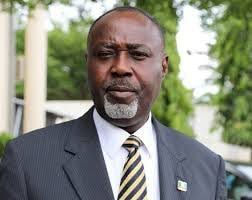The upcoming Anambra State gubernatorial election, scheduled for November 8, 2025, has become a focal point of intense internal conflict within the Labour Party (LP), exacerbating existing factional divisions and raising concerns about the party’s future cohesion. The Independent National Electoral Commission (INEC)’s recognition of Chief George Moghalu as the LP’s legitimate candidate, following his victory in a primary overseen by the Julius Abure-led faction, has further solidified the existing fissures. This recognition effectively endorses Abure’s leadership as the party’s National Chairman, a position contested by rival factions. Moghalu’s emergence through a seemingly legitimate primary process, which was monitored by INEC officials and election observers, adds a layer of complexity to the intra-party dispute. The primary, held on April 5, 2025, saw Moghalu secure a decisive victory, garnering 573 votes against his opponent, John Nwosu, who received a mere 19 votes. The official endorsement of Moghalu’s candidacy by INEC has seemingly legitimized the Abure faction’s control over the party machinery.
However, the INEC’s recognition of Moghalu has only served to deepen the already entrenched divisions within the LP. A rival faction held a parallel primary just days later, on April 10, producing Jude Umenajiego, a sitting member of the Anambra State House of Assembly, as their candidate. This parallel primary further underscored the deep-seated disagreements and power struggles within the party, with both factions claiming legitimacy and dismissing the other’s candidate. Umenajiego’s subsequent nomination of Henry Mbachu as his running mate, coupled with his assertive claim to be the only validly elected candidate, further solidified the division and set the stage for a protracted internal battle. The opposing primaries and subsequent declarations have created a confusing and potentially damaging situation for the LP, threatening to undermine the party’s chances in the upcoming election.
The underlying cause of the escalating conflict, according to Dr. Barry Johnson, the National Deputy Youth Leader aligned with the Abure faction, centers on a power struggle between Peter Obi, the party’s 2023 presidential candidate, and Alex Otti, the Governor of Abia State. This power struggle is allegedly driven by strategic positioning for the 2027 general elections. Johnson’s assertion reveals the depth of the internal rift, painting a picture of a party fractured by competing ambitions and personal agendas. He contends that the party is divided into three distinct camps: the Abure camp, comprising the National Working Committee and the National Executive Council; the Obi camp, encompassing the Obedient Movement and the Nenadi Usman group; and the Otti camp, purportedly supported by the Nigeria Labour Congress (NLC) and elements within the All Progressives Congress (APC). This tripartite division further complicates the political landscape within the LP and presents significant challenges for its future unity.
The distinct factions vying for control within the LP represent different interests and political aspirations. The Abure camp, strengthened by the INEC’s recognition of Moghalu, appears to currently hold the reins of the formal party structure. The Obi camp, leveraging the significant support base of the Obedient Movement, likely aims to capitalize on Obi’s popularity and influence to steer the party’s direction. The Otti camp, reportedly backed by the NLC and certain APC elements, adds another layer of complexity, potentially indicating broader political alliances and long-term strategic goals extending beyond the Anambra governorship election. The involvement of external actors, such as the NLC and APC elements, suggests a complex interplay of influence and potential power brokering within the LP.
The ramifications of this internal conflict extend beyond the Anambra governorship election. The power struggle between Obi and Otti, if unresolved, could severely damage the LP’s ability to present a united front in future elections, potentially jeopardizing the party’s broader political ambitions. The fracturing of the party into distinct camps, each with its own agenda and alliances, undermines the party’s ability to mobilize its support base effectively and weakens its negotiating power in the broader political arena. The internal strife also diverts attention and resources away from crucial electoral preparations, potentially hindering the party’s ability to compete effectively in the Anambra election and beyond.
The LP’s ongoing internal crisis highlights the challenges faced by political parties in Nigeria, where personal ambitions and power struggles often overshadow ideological coherence and policy-driven agendas. The Anambra governorship election serves as a microcosm of these broader challenges, showcasing the fragility of party structures and the potential for internal divisions to undermine democratic processes. The future of the LP hinges on its ability to resolve these internal conflicts and present a united front. The outcome of the Anambra election could significantly impact the party’s trajectory, either solidifying the dominance of one faction or further exacerbating the existing divisions. The internal strife also raises questions about the LP’s long-term viability as a major political force in Nigeria.


